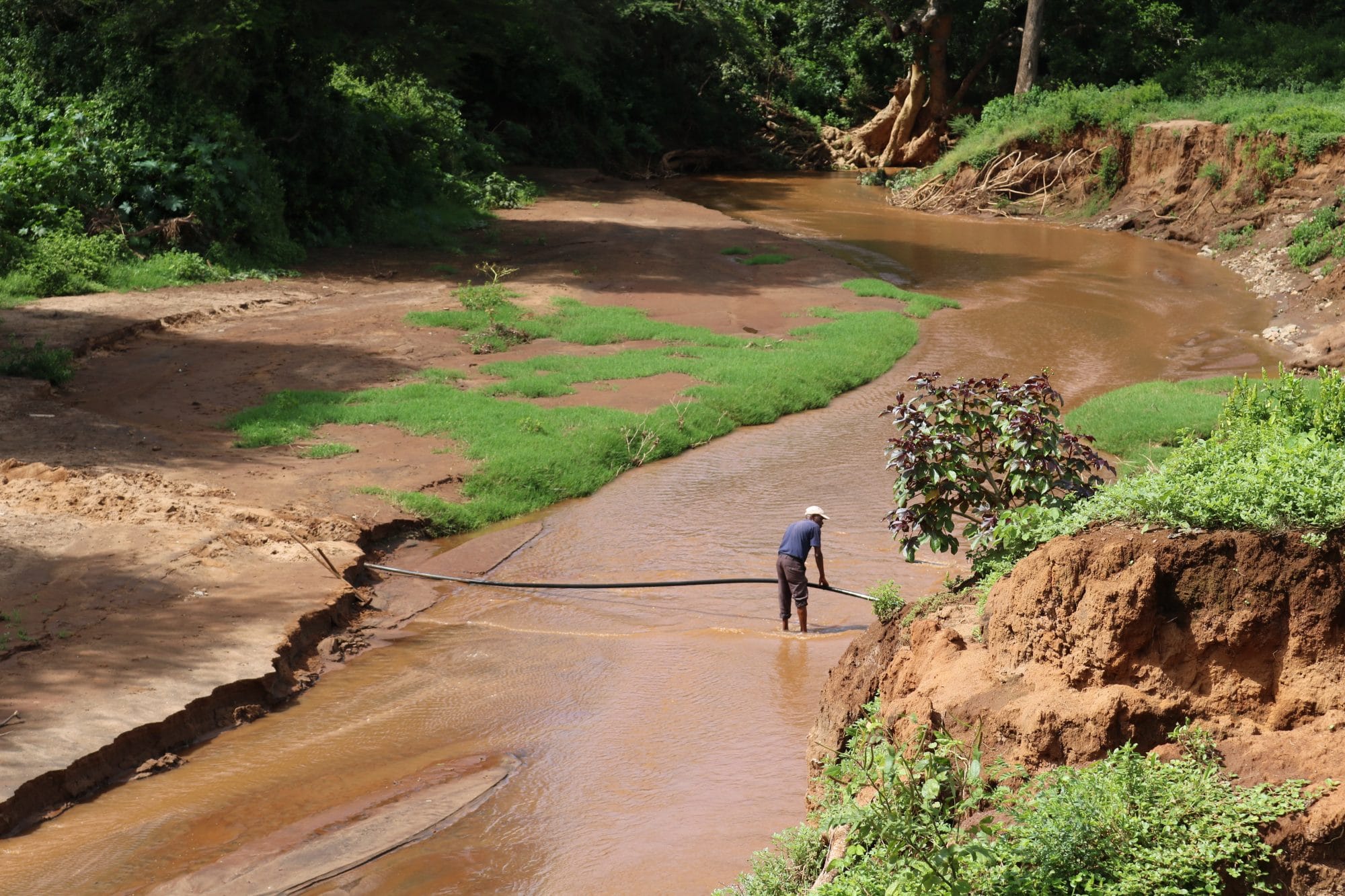When Patience Makes Profit
As the farmers in Kasapo started planting their crops last year, 45-year-old Anita Ernest had the courage to wait. With no signs of rain she did as advised by CARE and ended up harvesting before everyone else. Now she is ready to take on more new practices.
Dust is swirling around the road leading towards Kasapo in the Northeastern district of Same, in the Kilimanjaro region of Tanzania. It’s April and the village still hasn’t seen sight of the long rains. Yet Anita keeps a positive attitude. After receiving training in cultivation she was the first one to harvest her crops.
Facing the absence of rain during the short rains, CARE advised Anita not to begin planting before watering her field. While other farmers didn’t dare to delay the planting, Anita went back and forth to the CARE-implemented village well to fetch water for her field. Combined with training in measurements, seed spacing, and the usage of cover crops, Anita was able to bring maize and lablab (a type of bean native to Africa) to the nearby market in Makanya before her fellow farmers.
The 25th of March is circled in the family calendar hanging on the wall, signaling that a successful harvest is a family matter. This year, Anita harvested four bags of maize compared to none last year and a total of 10 bags of lablab – a successful harvest bringing food security to her family.
“Now I don’t worry about bringing food to my family as well as paying off some of the school fees,” Anita said – explaining how the money also covers a number of domestic expenses, such as food for the goats she raises.
As a Champion Farmer, Anita has been given the responsibility to inspire and encourage her fellow farmers to try out the techniques she’s learned from CARE. Apart from inspiring others, now she is also motivated to keep up the new agricultural practices to establish a little kitchen garden outside of her house.
